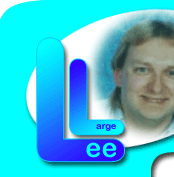The
New York radio landscape had been dominated for many years
by 77 WABC.
Much was made at the time of how it lost its crown as 'the
most listened to station in the nation' to Disco formatted,
WKTU late in 1978. But what is sometimes overlooked is when
the Disco fad ended and WKTU evaporated, it was another
AM station that became king of the radio hill, that being
66 WNNNNNNNBC.
WNBC
had languished in the ratings for some time when NBC management
brought in programming whiz kid, Bob Pittman from sister
station, WMAQ in Chicago in the Fall of 1977. It was he
who established the architecture (including identifying
the station with the deliberately exaggerated 'NNNNNNNN'
so as to offset it in the minds of diary keepers from WABC)
that would eventually lead to its #1 status a few years
later. That goal was realized under Program Director, Kevin
Metheny by 1980.
WNBC's
talent lineup during that time was nothing sort of stellar,
with names like Johnny Dark, Frank Reed and Alan Beebe joining
the venerable Imus in The Morning. The later additions of
Howard Stern, Wolfman Jack & Soupy Sales solidified
that all the more. I hardly imagined in my wildest dreams
I might wind up working on the same station as these radio
legends. But that is in fact what occurred late in 1983
(I would even share office space with Stern!).
Watermark,
the company responsible for American Top 40 with Casey Kasem
was acquired the year before by the ABC Radio Network. As
contracts with stations expired, ABC took the show from
existing client stations and gave it to ABC Owned &
Operated stations in markets that ABC had properties. In
Washington I witnessed this happen while at WPGC
as the show was given to Q107
(adding insult to injury, WPGC
happened to be one of the original seven stations to carry
the show from its initial airing on July 4, 1970).
In
New York, AT 40 had at various times been carried by WPIX,
99X and WNBC. The latter of these actually aired the show
twice each weekend but in a unique twist, ran the previous
weekend's show on Saturday sprinkled with custom liners
from Casey inviting listeners to enjoy the show again on
Sunday for 'the all new countdown'. Hence when WNBC lost
the show it now had eight hours of weekend programming to
fill. And that was the opening I had been waiting for.
Jim
Collins had been the Program Director and long time afternoon
man at WPGC until the strike
in May of 1977. He later when on to become VP of Pop Promotion
for Polydor Records in New York. But by 1981 the radio bug
had bitten him again as he returned to on air work and as
the Assistant Program Director of 66 WNBC. I had visited
Jim at the station several times before the station lost
AT 40 and listened to it at night in DC where its massive
50,000 watt signal had no trouble reaching. Jim
recommended me to Kevin Metheny who hired me initially for
freelance fill in work as the need arose.
And
so, on Thanksgiving weekend of 1983, with the Christmas
tree in place before the ice skating rink at 30 Rockefeller
Plaza, I debuted as the youngest DJ on what was still the
most listened to station in America (though the arrival
of Z-100 would quickly put an end to that claim). I continued
in that capacity while I worked full time at WPGC
in DC as well as when I went over Q107.
In
the Spring of 1985, WNBC began carrying Wolfman Jack's syndicated
'Graffiti Gold' show. Unlike other stations however, the
show was customized specifically for WNBC so that a local
announcer could act as his sidekick. By then, Dale Parsons
had become Program Director and hired me to work with Wolfman.
Because
Wolfman's dialog elements were pre-recorded and I knew in
advance what he would say, I could structure what I would
say in such a way so as to create the illusion we were actually
conversing on the air, despite the fact Wolfman was actually
3,000 miles away in LA! Each week I'd write relevant liners
for Wolfman to record. He would often dial up the listen
line to hear WNBC's audio then call me on the studio hotline
after a break to say how good we sounded!
The
show continued this way for about a year until 1986. By
then the program was out of production and all tapes had
been exposed several times on the air. WNBC began experimenting
with a new Oldies format at about the same time. Ultimately
the decision was made to not renew Wolfman's show. More
on its replacement is below. But during this time I also
did fill in work in other dayparts. The tape above is from
the Summer of 1986 on the day after my 10th high school
reunion. Being a quiet and introverted kid in school, my
classmates were just a little shocked to hear me the next
day on what was still one of the most listened to stations
in New York!
When
I began at WNBC in 1983 there was no Top 40 station on FM
in New York. Then within months if not weeks of each other,
Z-100 came along, WPLJ went Top 40 as did WAPP and WKTU.
Suddenly there was no room for a CHR on AM.
As
a result, WNBC evolved nicely into the personality driven,
Hot AC heard in the tape at the top of this page. Yet that
strategy wasn't enough however. Within the next year additional
Adult Contemporary stations such as WNSR and Lite-FM joined
NBC's highly successful WYNY in saturating the market with
music appealing to a predominantly female audience. As Yogi
Beara would say, it was de ja vu all over again. With changing
competitive dynamics such as these, WNBC had no choice but
to further evolve into a Gold based station.
By
1986 WCBS-FM had been in the Oldies format for nearly a
decade and a half, and featured many of the personalities
famous from WABC and WMCA. It would have make no sense at
all to duplicate the modern day sound of Oldies radio on
WNBC when it was readily available on FM. Yet something
had to be done.
Millions
of kids in New York grew up listening to the legendary 77
WABC. I was no exception. WABC was thee reason I got into
radio in the first place. But by the time I did so in 1976,
the on air mechanics of Top 40 radio had evolved dramatically
from the sound that had made WABC so famous during the '60's.
Sadly, WABC abandoned music for a Talk format in May of
1982 and thus an era ended.
One
of the defining characteristics of WABC's presentation in
the '60's was the sheer tonnage of jingles produced by PAMS
of Dallas. Year after year, the finest jingles of the era
debuted in one custom package after another at the finest
station in the nation. Those jingles were in many cases
just as familiar as the songs they were heard next to.
WNBC
commissioned PAMS to re-record many of those old WABC jingles
with the familiar three note 'N-B-C' chimes incorporated
in them. It also took a plate reverb unit at the transmitter
site and added it to the audio chain to provide wall to
wall (((reverb))) in much the same way that WABC had 20
years earlier. Thus, WNBC created 'The Time Machine', a
deliberate and meticulous recreation of WABC's sound from
the '60's. In essence, '60's music was presented on the
air as it had been during the time when those songs were
new. WABC was reincarnated! And never did I ever think I'd
be part of it!
The
second tape on this page is from 1987 in which I faithfully
execute the format as it had been done a decade before I
even got into radio. 'The Time Machine' was an instant success
and spread from weekends to overnights, lastly about a year
or so until General Electric acquired RCA, owner of NBC
and sold off all its radio stations. Ultimately, WNBC became
all sports WFAN and another radio era came to an end. With
a layoff in sight, I returned back to Washington to ponder
what to do next.
NEXT
>

<
Back to the Tuner (if not the future!). |

